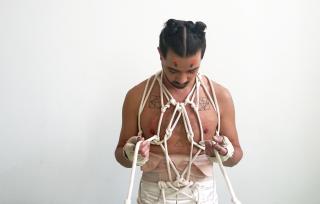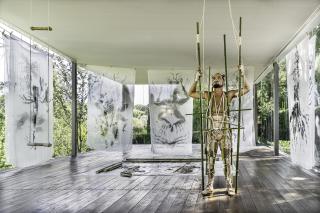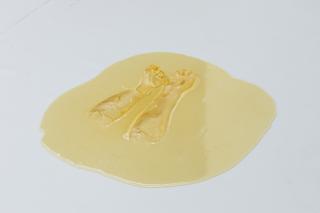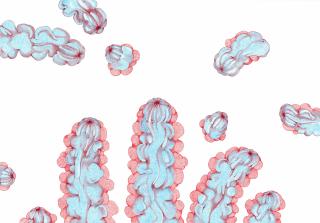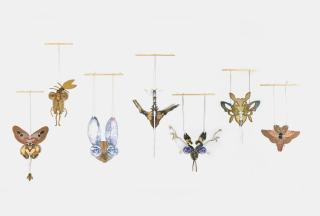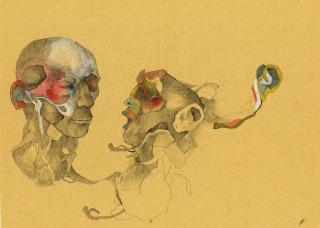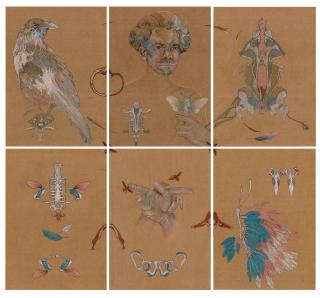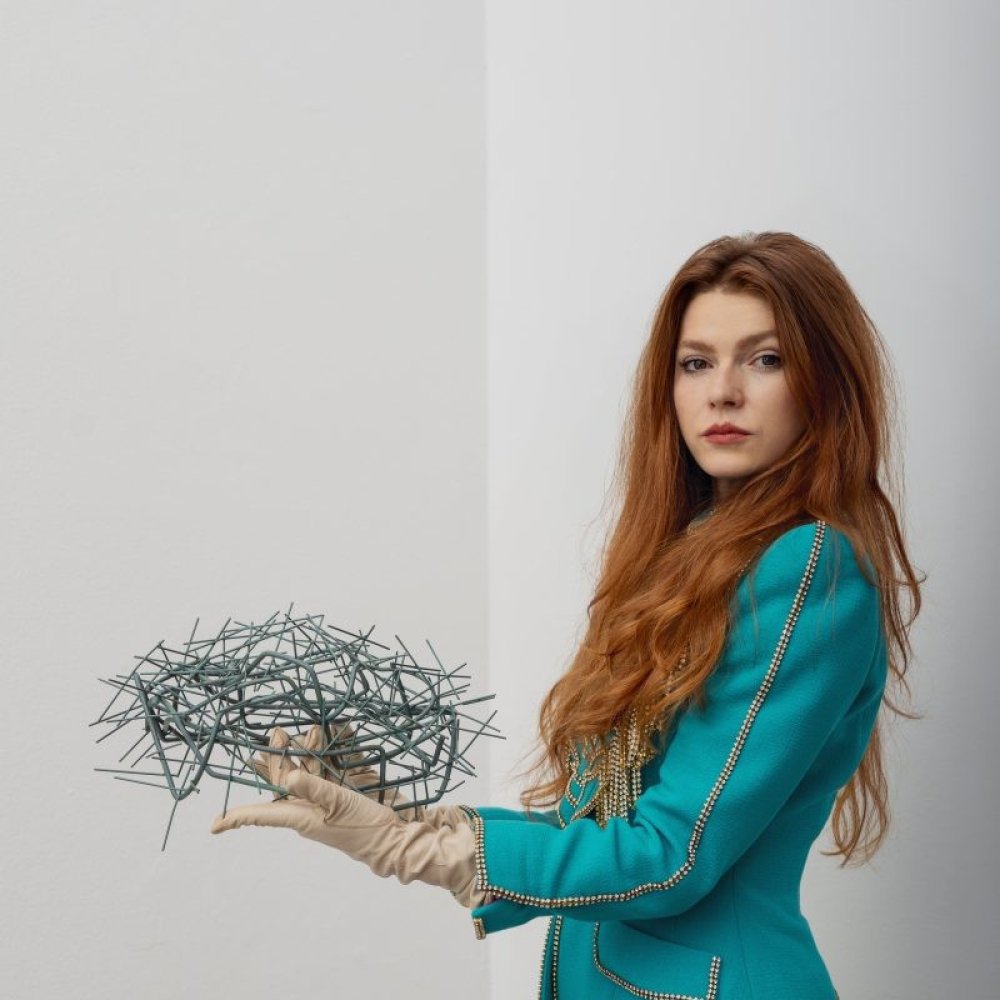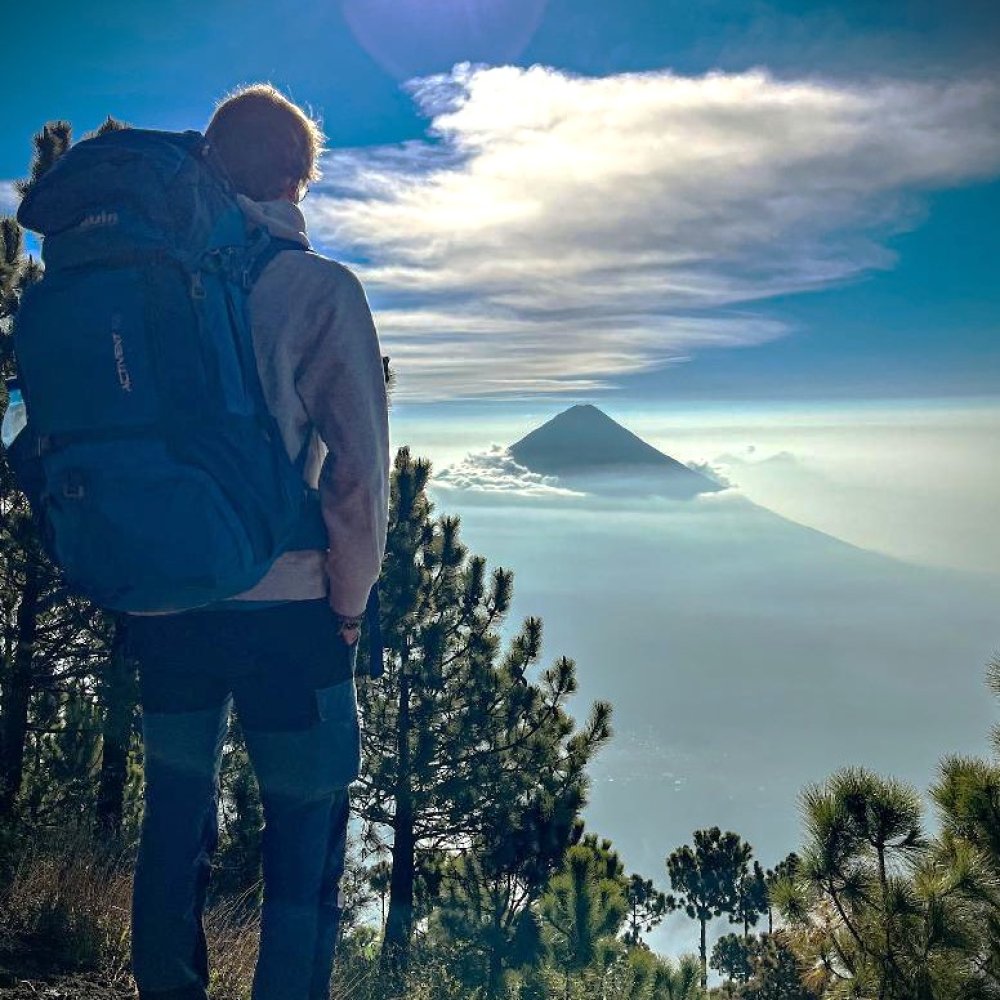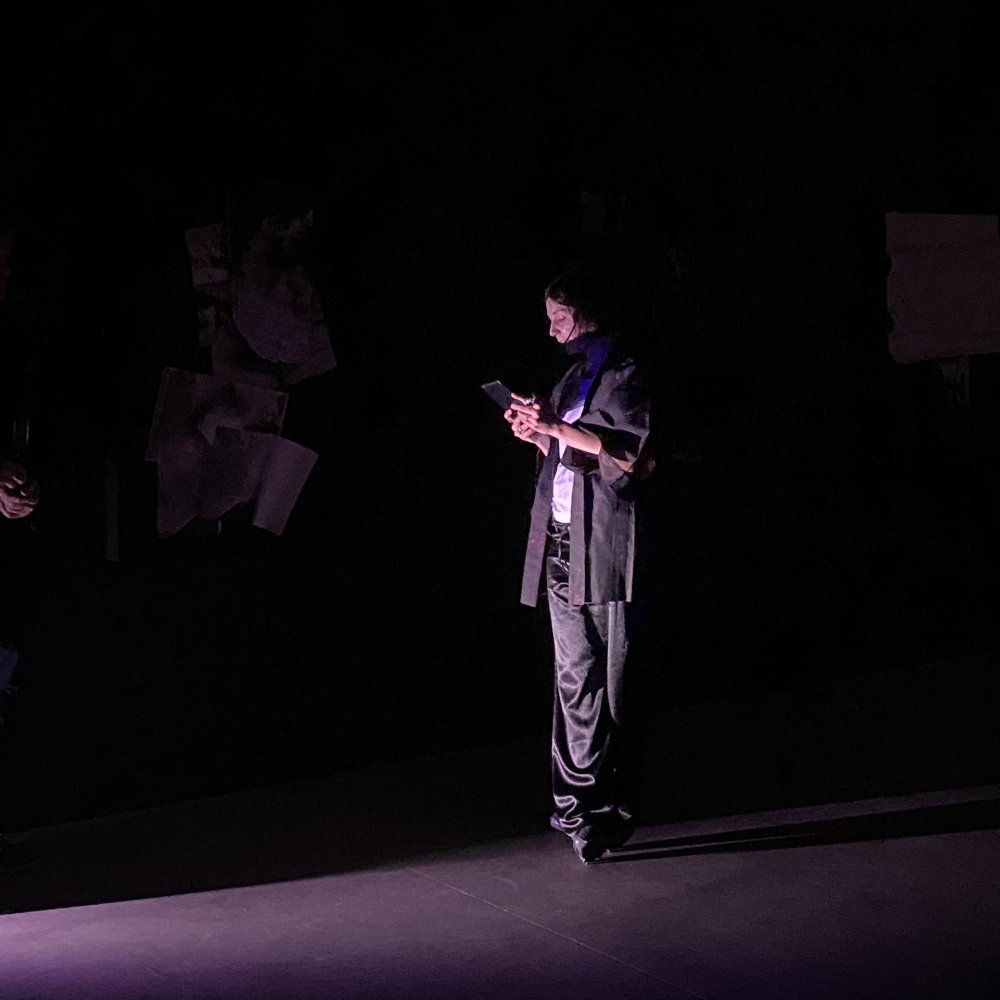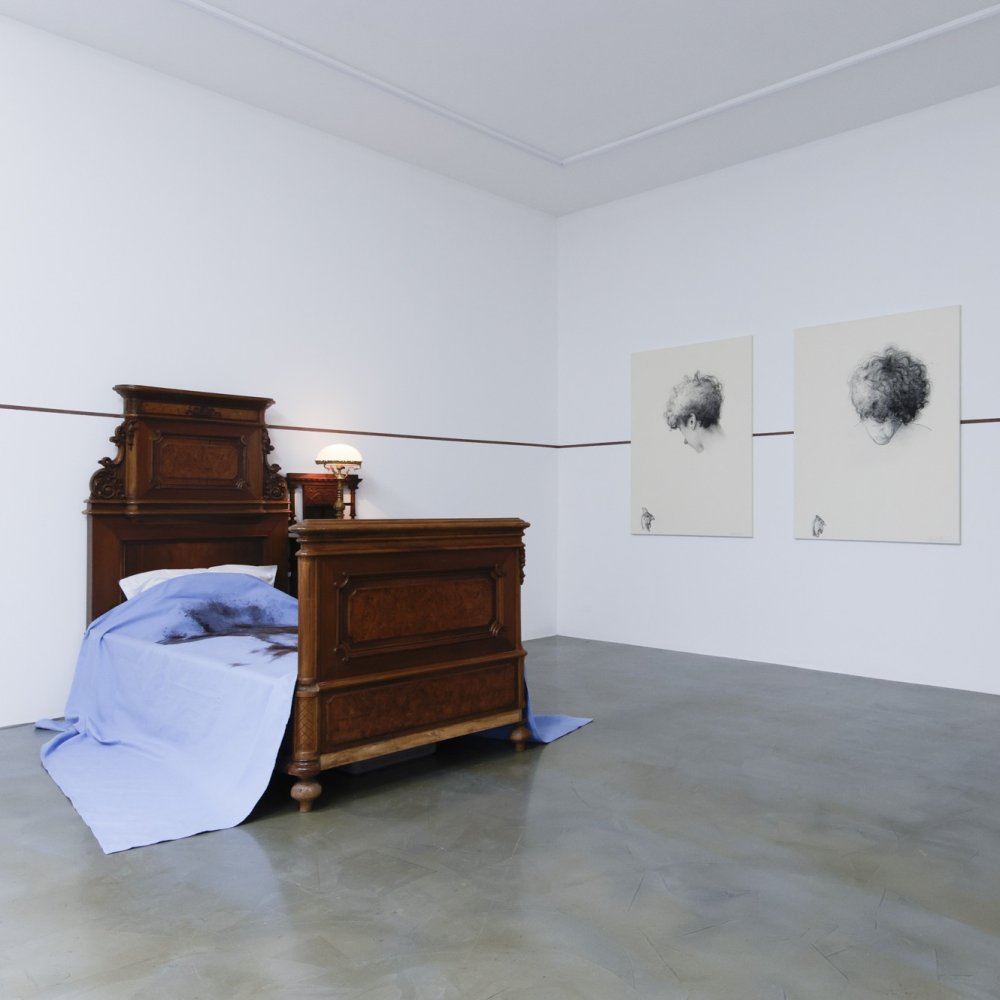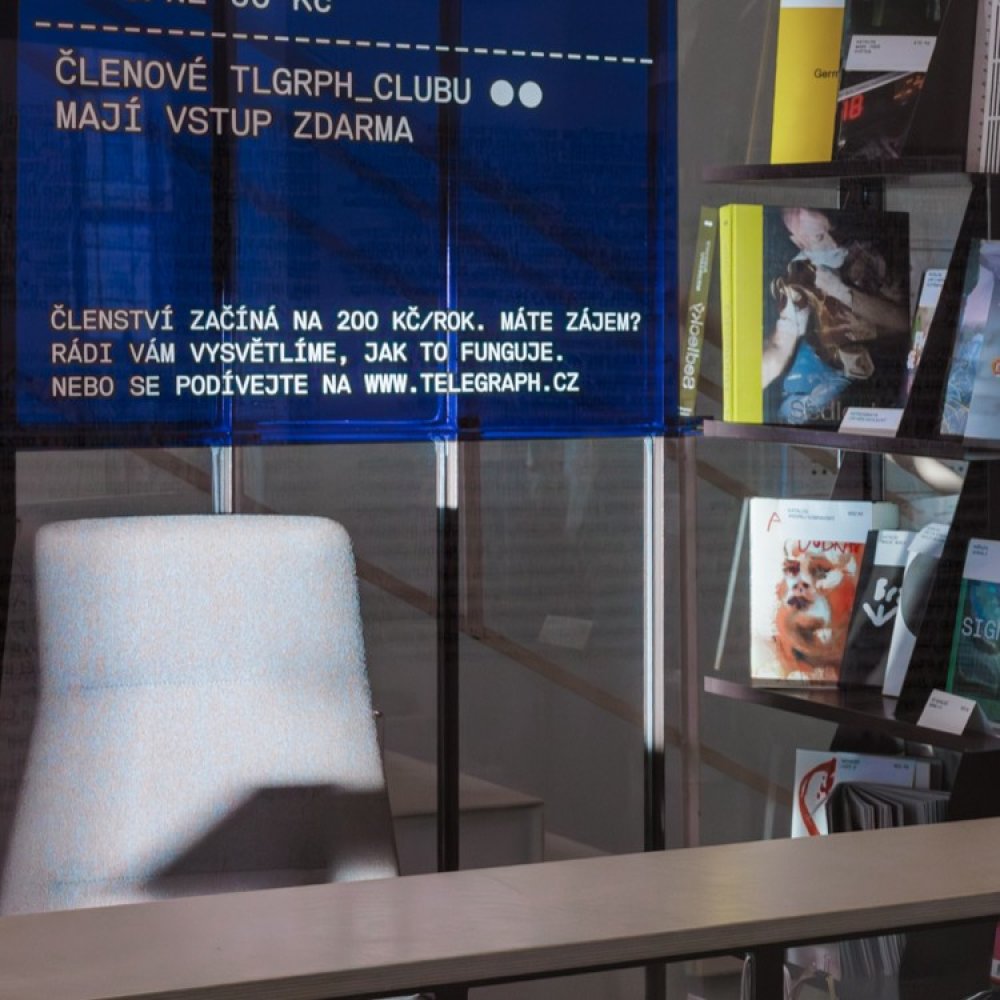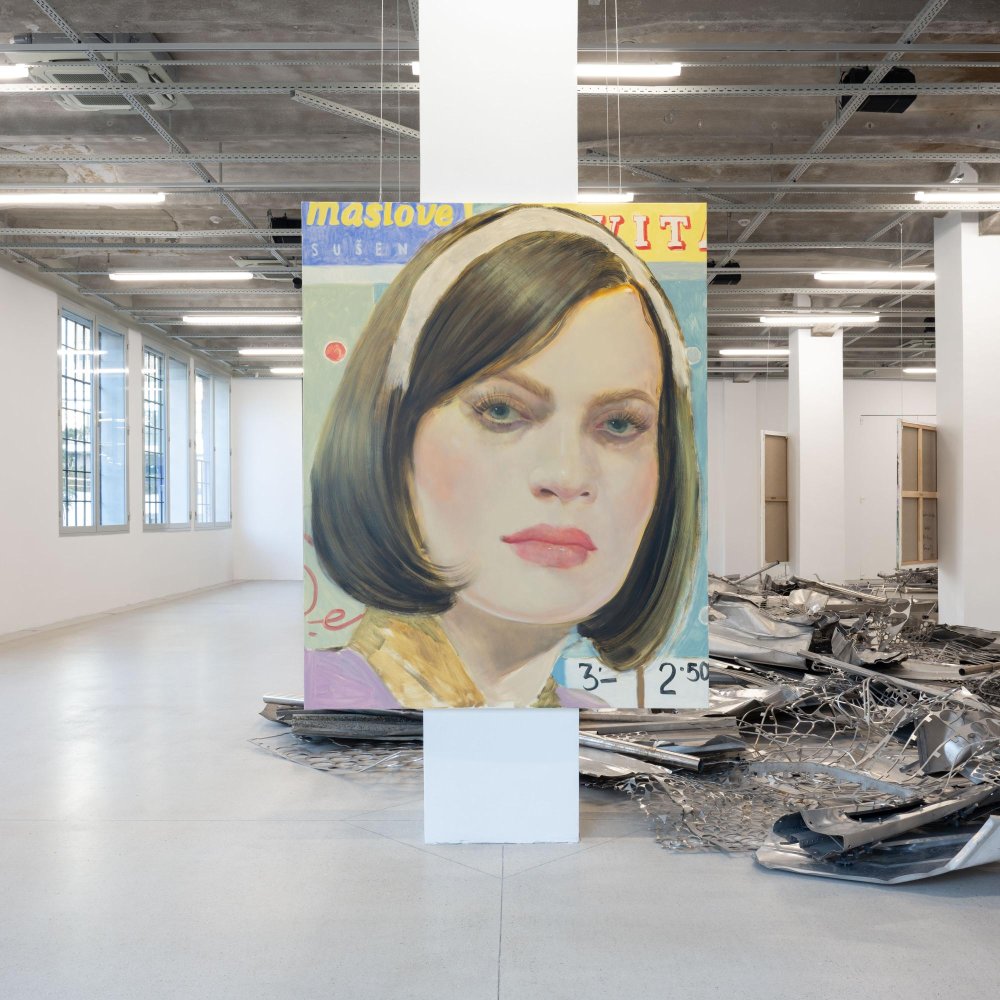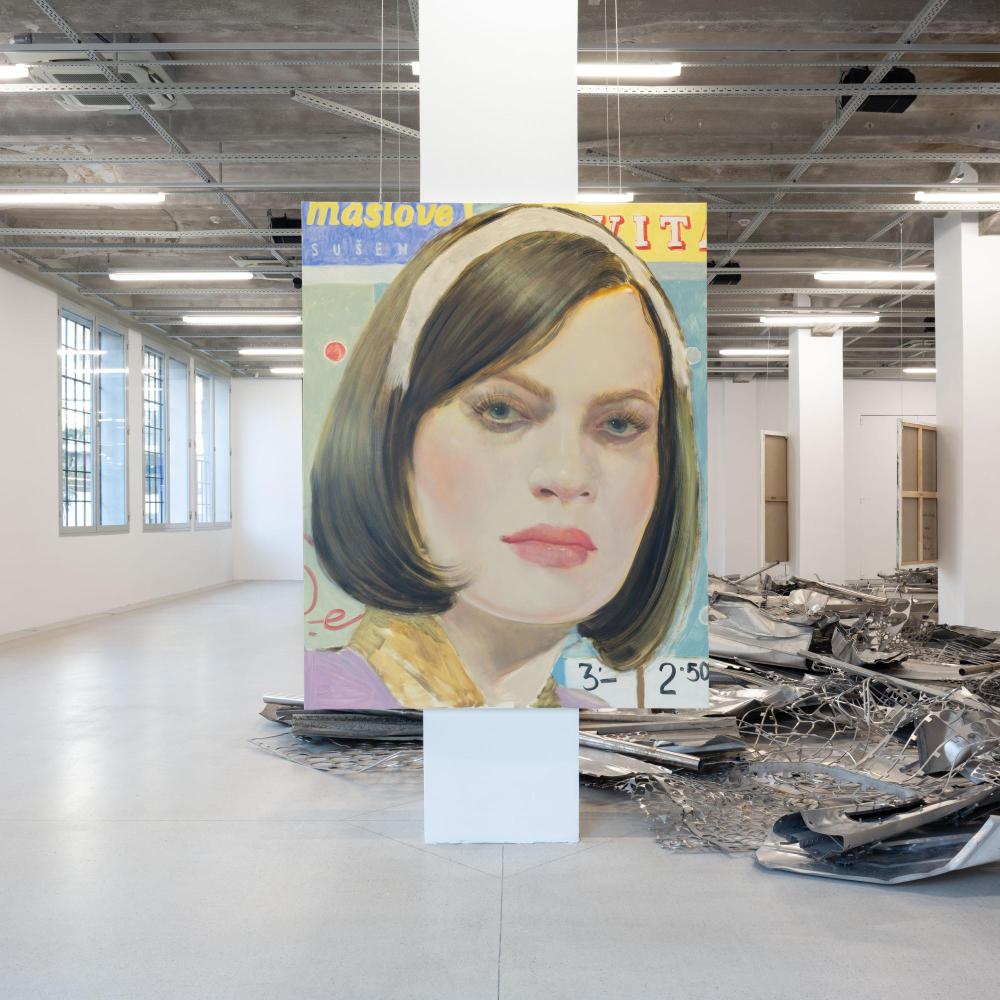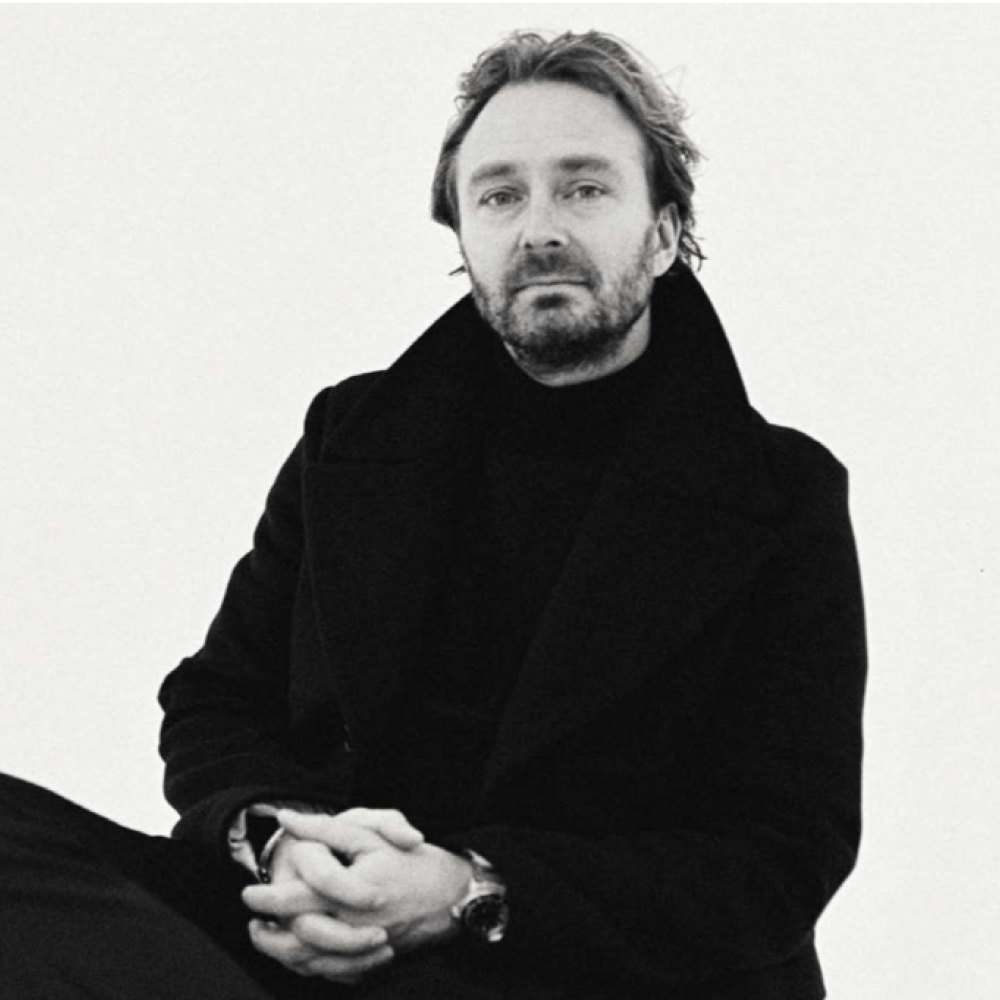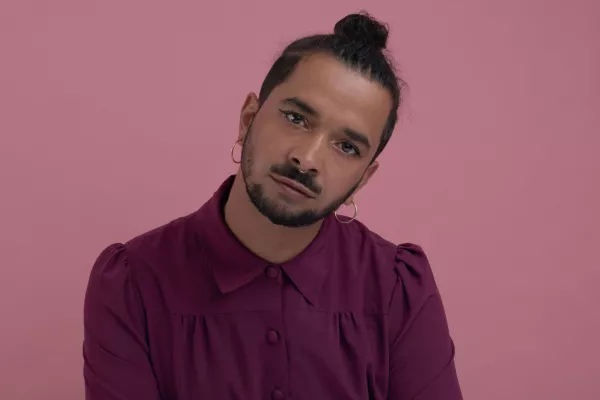
The interview was conducted on the occasion of the group exhibition Brave World at the Telegraph Gallery. The exhibition is curated by Tevž Logar and conceptualized by Gregor Podnar. Interviews with the artists were conducted by art historian Barbora Kundračíková, who works at the Department of Art History at Palacký University and the Olomouc Museum of Art-SEFO.
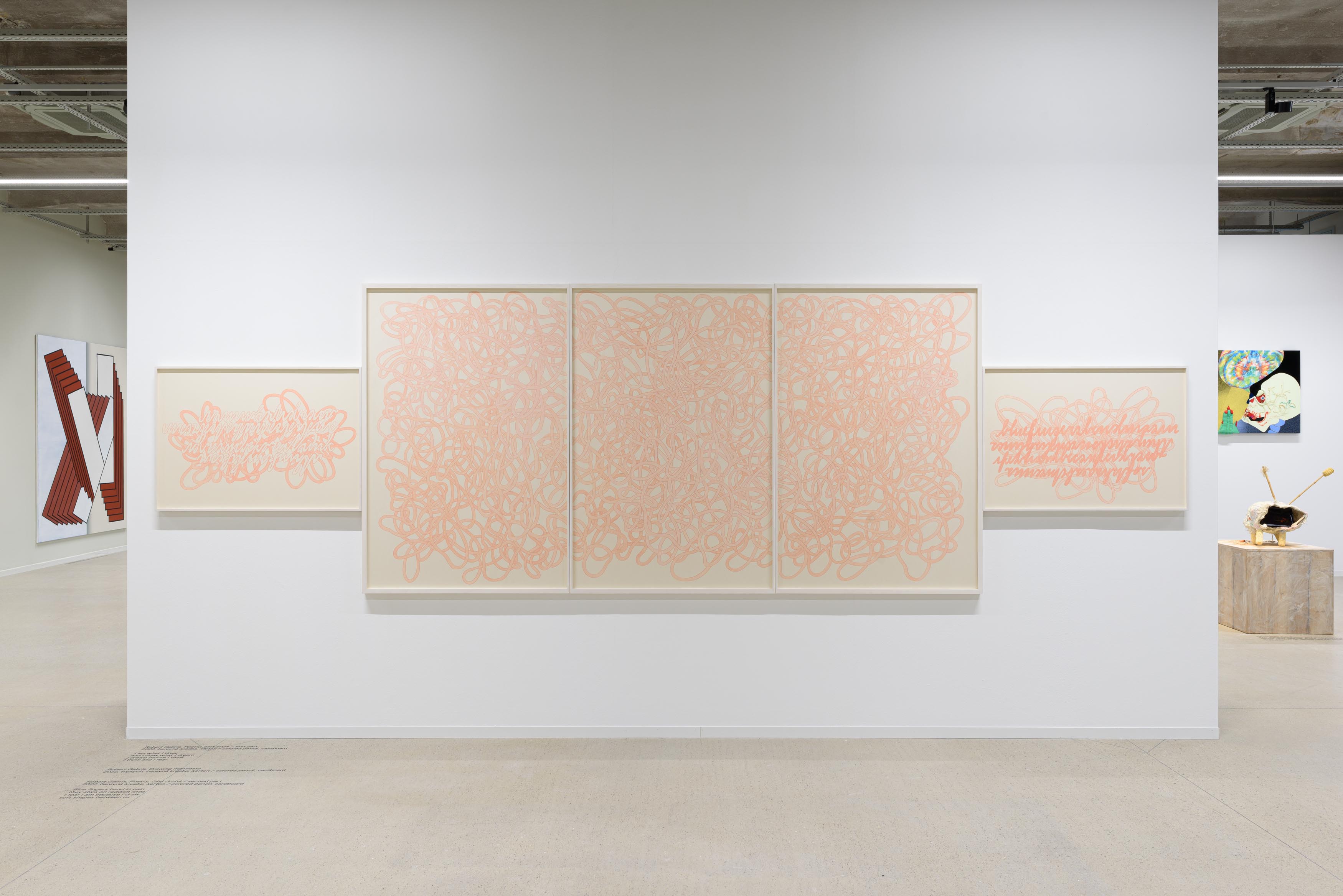
Robert, you often mention anger and rage in connection with your work, the desire to make up for losses, and establish better conditions. What is your personal politics, then?
My personal politics is to question equality in different contexts because we live in asymmetrical relationships with each other, often totally detached from the world. This distance has always interested me, the space between us, kinship, and longing for truthful connection. I transform my anger into productive thinking and creating, mostly through drawing. I often thematize queerness and fluidity as the only possible form of our existence. I reject all dominant norms and structures of repression constructed by those who refuse us.
How do you work with the flat surface of the image and what changes when you use your own body?
My surface is never flat because everything I draw begins three-dimensionally in my head. So, I transfer my thoughts onto the paper very carefully and precisely, there is little or no room for coincidence. I transform the inner into the outside. My idea is to create open spaces. No dream bubbles of impossible. I see my work as a dialogue, a language that forms different thoughts and invites others to become part of it.
What does beauty mean to you in this regard?
Beauty is fundamental because it is so often absent in all of us. We are constantly surrounded by wars, crises, and pandemics. The ugliness lives as if it were constant, it is not to be thought away. But my idea of this world is different. I see beauty as something that we all desperately need in these times. I hope that we have not forgotten it, because that would mean the greatest disaster of humanity.
As I see it, you use aesthetics as some sort of lure – playing with preconceptions we have when seeing soft and intimate forms of drawing, even if established in space. Am I right?
Aesthetics are used strategically for my drawing. I believe art is magnetically drawn to itself, but then it must be made understandable to fully convey its function. I abhor using superficial effects that shock and thus force attention. Aggression is intolerable for me; I am for radical softness.
Drawing itself as a medium is extremely interesting to me. It does not state the obvious even if it does; there is always this space in between. And it is also very private – there is still this idea or a feeling at least that we should look at it in private, observe it from above and very closely. Not just in this regard, it is truly physical, tactile even. Can you think about it?
Yes, drawing is very private for me, it often pulls me completely away from the present. It is so to say timeless, or sometimes years ahead. But it also allows me to deceive, cheat, or even disappear from here. I'm not sure any other medium can compete. Honestly, thinking out loud like that, I don't even want to know, I'm in love with it.
Coming back to the beginning – is art capable of changing the world or is it more about the articulation of its issues?
Art cannot change the world. For me, this idea also embodies the absurdity of the claim to move mountains with a pen. Art should challenge us more, create trouble, create open and inclusive spaces, and demonstrate against those who celebrate hate and toxic patriarchy.
Can you extrapolate a little bit, bearing in mind the situation here in Central Europe in contrast/balance with what is happening on a larger scale?
I understand very little about global complexity, it overwhelms me every time I read the news. Balance simply does not exist in my opinion. The world is constantly threatened with radical ideas that want to deliberately hurt others and destroy their identities. This question remains open because I see this world as it is today as unpredictable and self-destructive.
And are you satisfied with that, or are you considering a more "applied" approach – perhaps leaving the gallery?
I would like to experiment more with drawing in the future. Gregor Podnar Gallery is my first experience with the art market in general. Besides that, however, I do much more, I deal with social issues, and together with my husband Lukas we plant vegetables in the garden... Today I don't know where I will be drawn to later. One thing is for sure: I remain restless.
You have won the Belvedere Art Award, which is given by the Belvedere in Vienna. The award focuses on queer-feminist approaches and diversity in contemporary art. What does this award mean to you?
The Belvedere 21 Art Award is a great recognition of my artistic practice. I'm simply satisfied and still a bit overwhelmed. On the other hand, it also means a big challenge for the upcoming solo exhibition at Belvedere 21, to which you are of course all invited. So far it will be the biggest exhibition I have ever done. I'm really looking forward to it and I already have a few concepts in my head.
Robert Gabris (*1986) graduated from the The Academy of Performing Arts in Bratislava (scenography and costume design) and continued his studies at the Academy of Fine Arts in Vienna, where he currently lives and works. In 2021 he became one of the laureates of the Jindřich Chalupecký Award. In addition to the group exhibition at the Telegraph Gallery the work of Robert Gabris could also be seen at this year's Bienniale In the Matter of Art in Prague, where together with Ľuboš Kotlár he presented the installation Sugar.
Gabris himself identifies the source of his artistic creation as the confrontation of his own individuality with social schemes. Through his work, the artist, who belongs to the Roma ethnic group, fights against the social networks based on racism. The topics of networks, individuality and collectivism are also reflected in his latest installation Sugar, whose unveiling was accompanied by a performance where the rejection of the spiritual level of the collective body was replaced by an experience in a given network of relationships. Although the work of Robert Gabris is strongly autobiographical, it is not an intimate insight into the artist's mind, but rather defining his position within the aforementioned social network.
Portrait photo: Daniel Hill
